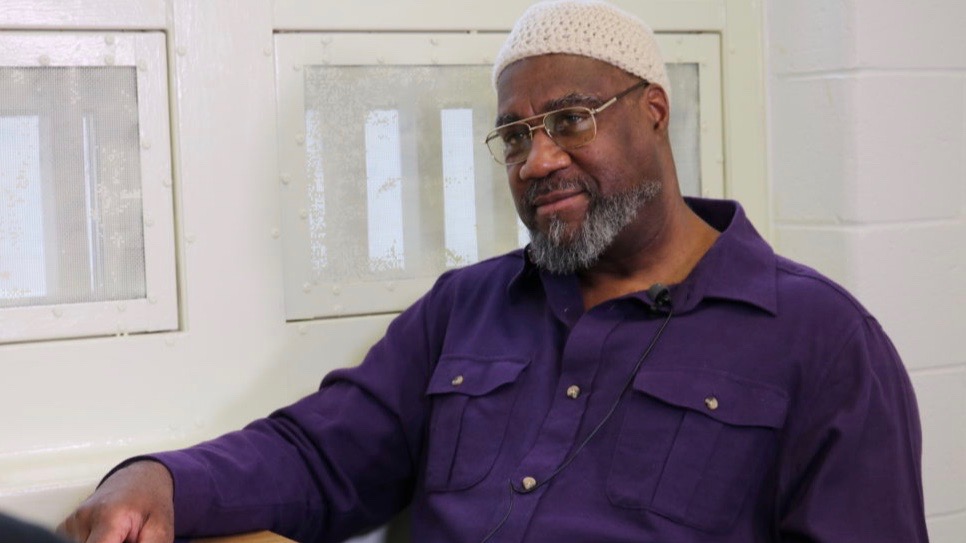68-year-old Jalil Abdul Muntaqim, a former Black Panther and civil rights activist, is set to be released on parole after being in custody for over 49 years in the US. Muntaqim, earlier identified as Anthony Bottom, was first imprisoned at the age of 19 after being convicted of killing two New York Police Department officers. His parole was rejected multiple times even as it emerged that the evidence used to convict him was flawed. His release comes at a time when the US is witnessing mass protests against systemic racism and police killings, since May.
On September 23, the New York parole board passed the order for Muntaqim to be released on parole before October 20. The order came after he was hospitalized with COVID-19 in June. The order was only publicized days later by the board. Even though Muntaqim was eligible for parole during his life sentence since 1998, his parole request was denied 11 times before. Muntaqim had secured parole earlier this year in June after his 12th parole hearing. However, the parole order was cancelled after State attorney general Letitia James, a Democratic Party member, intervened at the behest of the New York City’s Police Benevolent Association (PBA), who have vehemently opposed Muntaqim’s parole for years.
Muntaqim was one among dozens of Black Panther activists and other radical militants who have been languishing in prisons for decades following government and federal intelligence-sponsored crackdowns on civil rights activists in the US in the 1960s and 1970s.
We are pleased to announce that elder Jalil Muntaqim is coming home after nearly 50 years behind bars. #FreeOurElders pic.twitter.com/7UnW9CQ6pw
— Release Aging People in Prison Campaign (@RAPPcampaign) September 27, 2020
From teenage revolutionary to advocate of prisoners’ rights
Before prison, Muntaqim worked as a civil rights activist in association with the National Association for the Advancement of Colored People (NAACP) in his teens. He was one of the prominent organizers associated with the Black Student Union in San Francisco. He joined the Black Panthers Party (BPP) at age 17, prompted by the assassination of Martin Luther King Jr. He became an active part of the Black Liberation Army, a de facto armed wing of the BPP.
In August 1971, at the age of 19, Muntaqim and his comrade Herman Bell were arrested over allegations of killing two NYPD officers, Waverly Jones and Joseph A. Piagentini, in a shootout in New York city. Another BPP activist, Albert “Nuh” Washington, was also arrested along with Muntaqim and Bell over the alleged murder attempt of a San Francisco police officer.
According to police reports, the murders were triggered by the custodial killing of imprisoned civil rights activist George Jackson, who had been killed during a failed escape attempt. The arrest and prosecution of Muntaqim, Bell and Washington became a matter of debate years later.
One of the primary witnesses, Ruben Scott, whose testimony was the reason for the arrest of the three, confessed years later to having named Bell and Muntaqim after being tortured by the police. A ballistic report by the Federal Bureau of Investigation (FBI) also revealed later that the bullets found on the bodies of the officers did not match the bullets in the guns found on the three at the time of their arrest.
Muntaqim was found guilty of murder charges in 1974 and received his life sentence in 1993, after a delay of 22 years. Bell and Washington also received their sentences of 25 years to life imprisonment around the same. They became eligible for parole by 1998, which was repeatedly denied to them. Washington died of cancer while in prison in New York in 2000, while Bell received his first parole in 2018. Attempts to have the conviction reviewed or their sentences commuted in light of new evidence was rejected by the authorities.
While serving his life sentence in the high-security Sullivan correctional facility in New York, Muntaqim continued his civil rights activism by organizing the prison inmates. He formed the National Prisoners Campaign in 1976, and was instrumental in getting the United Nations to recognize the existence of scores of political prisoners, many of whom were his comrades from the BPP.
(Inputs from Opera Mundi and Freedom Archives)





